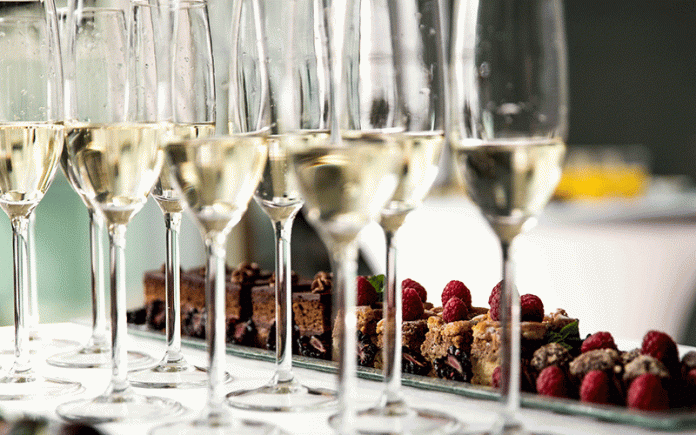
AY-CHAMPAGNE: French champagne producers had extra reason to celebrate this week with the sealing of a post-Brexit trade deal between the EU and the UK, the biggest market for the sparkling wine synonymous with luxury.
Champagne is a fixture of the high life in Britain, from the preferred brand — Bollinger — of fictional superspy James Bond to certain makers’ coveted status as suppliers to the Queen and royal family.
In fact, the island nation mops up between 25 and 30 million bottles of the French fizz every year.
That makes a deal ruling out new tariffs and quotas on goods trade across the English Channel “an enormous relief” for the sector, said Jean-Marie Barrillere, president of the UMC federation of champagne houses.
“It’s a happy ending to a story that’s gone on too long.”
Since Britons voted in 2016 to quit the European Union after half a century of membership, the spectre of a “no-deal” departure had hung over the sector.
“Do you realise, without a deal, the English will become foreigners and Britain a market just as distant as Africa or Asia,” Barrillere fretted earlier this month, fearing “new taxes, customs formalities, complex bureaucracy and logistical nightmares”.
The potential pain was all the more frightening given the boost in sales in the months ahead of Britain’s definitive departure from the EU single market.
“Whether private individuals or importers, the English have kept stocking up. We kept delivering,” the UMC chief said.
He judged that bottles totalling around 10% of annual sales should be safely on British shelves and in wine racks by Dec 31.
That should make for plenty of bubbles to toast the release of James Bond’s next glamorous adventure “No Time To Die”, delayed twice due to the coronavirus pandemic and now slated for spring 2021.
“We exported one or two months’ worth of stock in advance to get ahead of the logistics,” Bollinger chief Charles-Armand de Belenet said.
“A simple handshake between James Bond producer Cubby Broccoli and Bollinger’s Christian Bizot has endured since 1979,” he added — a coup all the more valuable as Bollinger is “the smallest of the grand champagne houses”.
‘The English are resilient’
Bollinger may be on her majesty’s secret service with Bond.
But there’s nothing hidden about the Royal Warrant declaring the house’s role “by Appointment to HM Queen Elizabeth II, Purveyors of Champagne,” outside its headquarters in Ay-Champagne around 150km east of Paris.
The manufacturer has enjoyed the special status supplying the court since the reign of Queen Victoria, and its long association with France’s northerly neighbour kept de Belenet surprisingly confident throughout the ups and downs of Brexit.
“The English are very resilient. We expected a blow to confidence (from Brexit), but the market is holding up well. It’s more robust than the French market,” he said.
Each year around one-third of Bollinger’s revenues — or €1.5 million — flow from Britain.
Manufacturers turning out fewer than Bollinger’s roughly three million bottles per year have been more anxious that demand could dry up from across the Channel.
Joseph Perrier, which sells around 20% of its 800,000 bottles per year to Britain, does not have the scale to absorb the kind of blow a no-deal would have dealt to its business.
“We aren’t in a position to manage all the customs paperwork for a distant market” outside the EU system, Joseph Perrier chief Benjamin Fourmon worried ahead of this week’s breakthrough.
A supplier beloved enough of Britain’s royal family to be considered its “unofficial partner”, the champagne house feared a “catastrophe” if new trade barriers appeared.
Nevertheless, “wines from Champagne have captured the hearts of the English for three centuries,” said Maxime Toubart, president of the region’s winegrowers’ union.
“We’ll keep our eyes open, but the ties between Champagne and the UK give us confidence” despite the upheaval ahead as Britain quits the single market.


